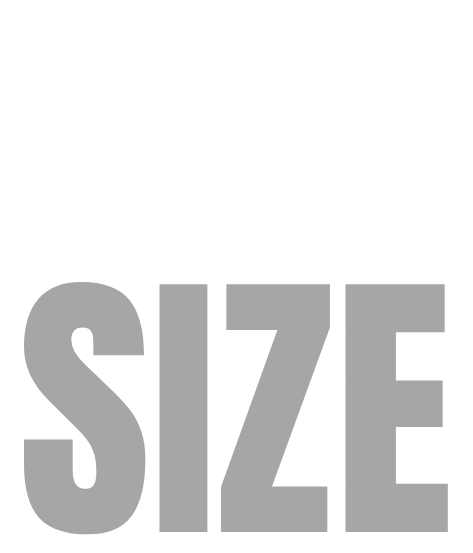The need for leaders capable of tackling complex global challenges has never been more pressing. Roberta Perdomo , specialist in Strategic People Management, addresses this urgency in her new book, “I Wasn’t Born to Lead: the Practical Path to Go Beyond Management”. The work not only reveals the true meaning of leadership, but also provides a path for those who want to overcome simple management.
Roberta Perdomo , with more than 15 years of experience in Human Resources, has experienced firsthand the confusion between management and leadership. In her book, she reveals that leading is an art deeply linked to being, while managing is a discipline linked to doing. This distinction is crucial for building a leader who can inspire, guide and empower their teams, creating an environment of growth and trust.
The book offers a series of supporting activities to help readers connect with leadership in a more conscious and empathetic way. Roberta shares insights acquired throughout her career, which includes collaboration with companies such as Natura &Co, Itaú Unibanco, Scania, RaiaDrogasil and Grupo Tigre.
“I Was Not Born to Lead” is a guide for leaders who want to do more than just manage: it is for those who seek to create positive impact and mutual growth, both in their organizations and in their personal lives. Roberta Perdomo shows us that the leaders the world needs today are self-aware, empathetic, facilitative, and purpose-driven.
With her rich experience and practical approach, Roberta offers readers the tools they need to transform their workplaces into spaces where leadership translates into positive impact. This book is an invitation to all those who want to be inspiring leaders in an ever-changing world.
What motivated you to write “I Wasn’t Born to Lead” and what is the main message you hope readers take away after reading it?
I wrote this book because I have a sincere desire to see the world filled with better leaders (and people). Leadership can be an answer to the problems we face today, and if we continue to look at leadership only from the management paradigm, we will remain in the same place. I hope readers take away inspiration and learning, especially about themselves. I hope you leave reading transformed, provoked and with a desire to lead in a different way.
You distinguish leadership from management in your book. Could you explain this difference and why it is crucial to understand these concepts in today’s corporate world?
Leadership is not related to the position we occupy in an organization but to our attitude towards life, our way of being and being in the world. Therefore, leadership is in the being. Management, on the other hand, is linked to the role, position and our responsibilities. It concerns the processes, methods and routines that we carry out every day to carry out our work. In other words, it’s in the doing. The two things need to go together, but they are not synonymous.
The central issue is that this confusion between the two terms especially impacts people’s engagement, which causes demotivation, a drop in productivity and ultimately in financial results. By dedicating ourselves only to management practices, we lose the ability to inspire and influence people to do their best. The environment can even become toxic when leaders are not aware of their attitudes or when they do not listen to the people around them.
How would you describe the ideal leader profile that the world needs today? And what are the biggest challenges for today’s leaders?
Current challenges involve understanding and adapting to an increasingly complex environment, ranging from climate change to technological changes. Internally, we have increasingly toxic work environments with high turnover and difficulty attracting talent. In the book, I take an internal look at how this leader can increase his self-awareness, his quality of presence, his ability to connect his attitudes to a genuine intention and his ability to listen to his team.
By looking at yourself, it becomes easier to take care of others and the business, intentionally and with purpose. At the same time, allow yourself to be vulnerable and leave the hero leader paradigm behind . These are some of the questions raised in the book to provoke reflection and awaken us to a new way of leading our teams and organizations.
In your book, you talk about the importance of self-awareness for leaders. Could you give some practical examples of how leaders can cultivate this quality?
Self-awareness involves understanding what we are experiencing in the exact present moment. And from there we can choose how to act and not simply react to things on autopilot. A practical example is exercising attentive, genuine, open and non-judgmental listening. When we can do this, we are there, fully present and connected to each other. Another practical example is the focus on self-knowledge. Knowing who we are today, what our values and deepest motivations are greatly increases our self-awareness – including when making decisions that impact the business and people.
You have extensive experience in human resources with large companies. How did these experiences influence the ideas and strategies presented in the book?
Everything I bring in the book comes from what I have learned and experienced over the last 20 years as an HR executive, executive coach and corporate learning facilitator. Our experiences shape the way we think and see the world, and it’s no different for me. What I wrote has a deep connection with my values, my convictions and especially with my mistakes and successes. What I saw and see in organizations, the leaders I followed with their pains and challenges, are there in the narrative I chose for this book.

Could you share a story or example from the book that illustrates a moment of transformation from a manager into a leader?
In the book I bring some examples of myself and other people who find themselves acting on autopilot or who are overwhelmed. In moments of awakening, these people choose to act differently, being more present in their daily lives and delegating more to their teams. In these moments of lucidity, when we look the team in the eye, when we give people authority to make decisions, when we are intentional in our conversations and decisions, we are acting as leaders and not just as managers.
What supporting activities do you include at the end of each chapter, and how can they help readers develop their leadership skills?
At the end of each chapter I bring questions for reflection and in one of them, a self-assessment so that the reader can see themselves as being between what I call a hero or facilitator leader. The reflections are purposeful and have a logical sequence, so that in the end the reader comes closer to their most authentic leader.
In the book, you address the topic of authenticity in leadership. Why is it important for leaders to be authentic and how does this affect their teams?
Authenticity involves first knowing who we are. And from that, act in a way that is congruent with that. When we are authentic, we put our best version at the service of others and are better able to connect and inspire. Teams notice when leaders are not truthful or when they are not present in conversations and interactions.
How do you see the role of empathy in leadership and what are some practical ways for leaders to develop greater empathy?
Without empathy there is no dialogue. Conversations become “truncated”. Psychological security decreases and people stop saying what they think and even taking risks and being daring for fear of the consequences. The first step to developing empathy is to suspend our judgments about other people. This involves a profound change in how we relate to people. We judge, it’s normal, but if we are able to let go of everything we think about each other? What changes in our relationships? Well, I say it changes everything. Suspending our judgments does not mean that I must accept or agree with everything others say and do. That would be passivity or submission.
Suspending our judgments means that despite what we think, this person deserves respect and deserves to be listened to. It means believing that each person is unique and has their own view on things – and that it may be different from mine. This changes the game, and it’s what makes us learn to be more empathetic. It’s difficult, it’s a lifelong task. But this is what will make the difference in building trust in teams and organizations.
Finally, what advice would you give to someone who doesn’t see themselves as a leader, but who, according to your book, has the potential to become one?
Let go of the belief that leadership is not for you. You probably have a bad reference or a model that seems unattainable. You can lead your way, without having to be something you are not. The first step is to learn a little more about yourself.
Follow Roberta Perdomo on Instagram


